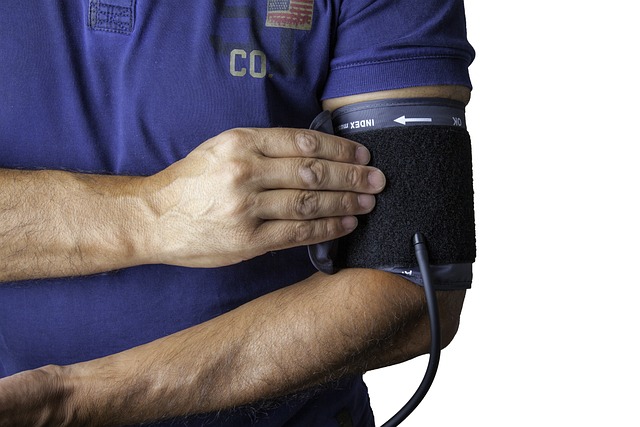Stress and anxiety are common challenges in today's fast-paced world, impacting overall well-being. Wellness practices such as mindfulness techniques (meditation, deep breathing), yoga, healthy eating, regular exercise, and gratitude journaling play a crucial role in stress management. These practices empower individuals to take control of their mental health, fostering balance and resilience. Engaging consistently in these activities can significantly reduce stress and anxiety, leading to improved mental clarity, emotional stability, and overall quality of life.
In today’s fast-paced world, managing stress and anxiety has become paramount for overall wellness. This article explores effective wellness practices, particularly focusing on mindfulness techniques, yoga exercises, and meditation practices to combat these prevalent issues. We delve into the science behind stress and its impact on mental and physical health, emphasizing the importance of adopting holistic stress management strategies. Discover simple yet powerful tools like deep breathing exercises, gratitude journaling, and healthy eating habits alongside traditional practices such as yoga poses and guided meditation to cultivate calmness and clarity in your daily life.
- Understanding Stress and Anxiety: The Need for Wellness Practices
- – Definition of stress and anxiety
- – Impact on mental and physical health
- – Importance of adopting wellness practices
Understanding Stress and Anxiety: The Need for Wellness Practices

Stress and anxiety are prevalent issues that can significantly impact our overall well-being. Understanding these emotions is the first step towards managing them effectively. Stress is often a response to challenging or threatening situations, triggering physical and mental reactions. On the other hand, anxiety refers to feelings of worry, fear, or unease, sometimes without an apparent external cause. In today’s fast-paced world, many individuals struggle with these internal states due to various factors like work pressures, personal relationships, or health concerns.
Wellness practices play a crucial role in navigating and reducing stress and anxiety. Incorporating mindfulness techniques, such as meditation and deep breathing exercises, can help calm the mind and body. Yoga, known for its physical and mental benefits, is also an excellent practice to enhance flexibility, strength, and mental clarity. Additionally, simple habits like healthy eating, regular physical activity, and gratitude journaling can significantly contribute to stress management strategies. Self-care routines, when incorporated into daily life, empower individuals to take control of their mental health and foster a sense of balance and resilience.
– Definition of stress and anxiety

Stress and anxiety are prevalent modern-day challenges that can significantly impact our overall wellness. These conditions often arise from various factors, including demanding lifestyles, work pressures, personal relationships, financial worries, or traumatic events. While they may present differently in each individual, stress and anxiety share symptoms like restlessness, muscle tension, difficulty concentrating, irritability, and overwhelming feelings of worry or fear.
The good news is that there are numerous effective wellness practices, such as mindfulness techniques, yoga exercises, and meditation practices, which have been scientifically proven to manage and reduce these negative impacts. Incorporating stress management strategies into your daily routine can help foster a sense of calm and promote emotional well-being. Additionally, healthy eating habits, regular physical activity, deep breathing exercises, gratitude journaling, and self-care routines can all play significant roles in navigating and overcoming stress and anxiety.
– Impact on mental and physical health

Engaging in consistent wellness practices like mindfulness techniques, yoga exercises, and meditation practices can significantly mitigate the effects of stress and anxiety on both mental and physical health. By incorporating deep breathing exercises into your daily routine, for instance, you can stimulate the parasympathetic nervous system, promoting relaxation and lowering heart rate and blood pressure. This, in turn, enhances overall well-being and reduces the risk of stress-related ailments.
Additionally, practices such as gratitude journaling and regular physical activity, paired with healthy eating habits and self-care routines, create a holistic approach to stress management. These strategies not only alleviate symptoms of anxiety but also foster resilience, enhancing your ability to cope with life’s challenges. The synergistic effects of these wellness practices can lead to profound improvements in mental clarity, emotional stability, and overall quality of life.
– Importance of adopting wellness practices

Adopting wellness practices is an essential aspect of maintaining a healthy and balanced lifestyle. In today’s fast-paced world, where stress and anxiety have become prevalent companions, prioritizing self-care is more crucial than ever. Engaging in various mindfulness techniques, such as yoga exercises and meditation practices, can significantly contribute to stress management strategies. These activities help calm the mind, reduce tension in the body, and foster a sense of inner peace.
Beyond these practices, incorporating healthy eating habits, regular physical activity, and deep breathing exercises into your routine can create a comprehensive self-care regimen. Additionally, gratitude journaling and establishing consistent self-care routines can enhance overall well-being. These wellness practices not only help manage stress and anxiety but also promote a greater sense of happiness, resilience, and personal fulfillment.
Incorporating mindfulness techniques such as yoga exercises, meditation practices, and deep breathing exercises into your daily routine can significantly enhance your wellness practices. Stress management strategies, combined with healthy eating habits and regular physical activity, form a holistic approach to overcoming anxiety. Additionally, gratitude journaling and self-care routines play pivotal roles in promoting mental and physical health. By adopting these simple yet effective stress reduction tools, you can navigate life’s challenges with greater ease and foster a deeper sense of well-being.
